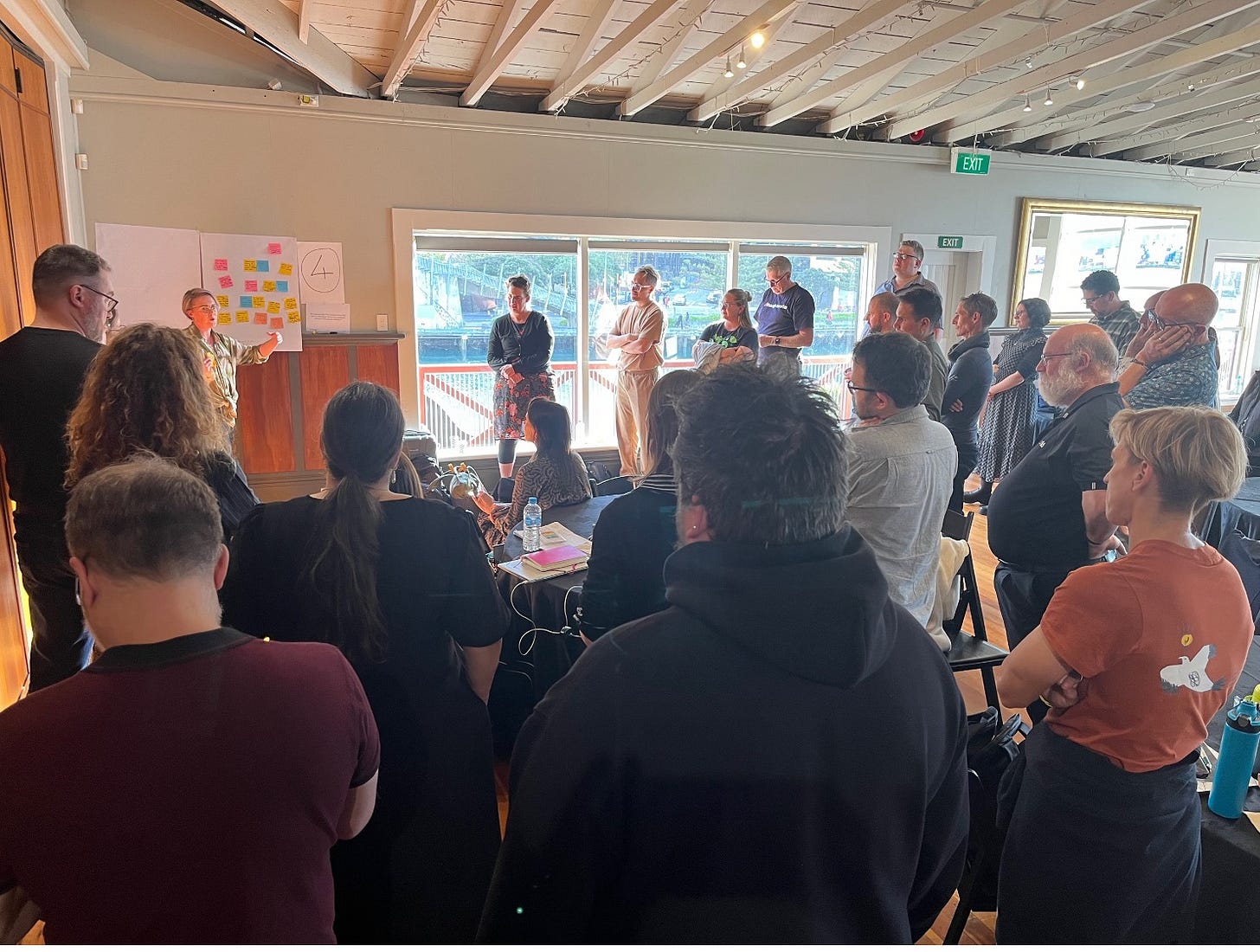I came upon this post by Sandy Mamoli, which shared some outcomes from a local New Zealand conference (JAFAC) she attended. One of the focus points was group exploration around the theme of Reimagining Agile, which is a popular (and necessary) topic nowadays.
However, what stood out to me in the article was the premise of (1) identifying some of the stories we agilists tell ourselves and (2) challenging ourselves to validate and potentially reframe those stories that are no longer valid.
Here is a list of the stories that Sandy shared—
Agile will deliver better productivity
Agile is easier with dedicated teams
You shouldn’t compare teams
If only the CFO trusted us…
You need a transformation to learn Agile
You need a leadership buy-in
Velocity = Value
We need certain roles to be successful
Agile belongs in IT
We can’t consistently deliver value if we don’t know what is on the roadmap
We can measure Agile teams with the same measures we use for other teams
Each team needs to be able to work autonomously
The workforce can only be Agile in an engaging environment
We need certain ceremonies
Agile requires co-located teams to be effective
Regular feedback from customers, stakeholders, and team members is essential for continuous improvement and alignment
Leaders need to be facilitators who empower teams
Maintaining high technical standards and prioritizing good design are key to sustaining long-term agility
My point is not to challenge any of these stories. But to encourage all of us to challenge our own stories. Asking yourself—
What stories have I been telling myself about agile?
For how long? Are they still valid?
Do they need to be reframed or changed? Or deleted entirely?
And what new stories have I learned that I should be using?
Wrapping Up
Much of our agile essence, identity, and presence is dictated by the stories we tell ourselves about agile dynamics daily.
Sandy and her group discovered an important reflection at their conference. I’m already adjusting my own stories, and hopefully, I have inspired your reflection.
Stay agile, my friends,
Bob.


